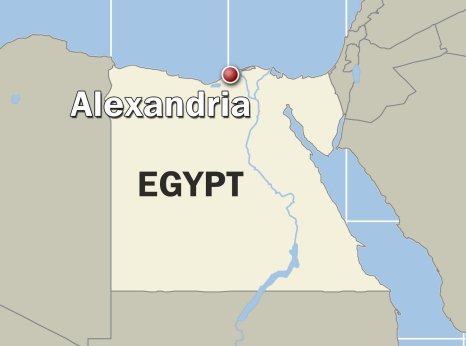Egypt: Ahmadi Minority Members Tortured

On 11 March 2025, police officers in plain clothes arrested Ahmed Mohammed Al-Tenawi and his brother, Hussein Mohammed Al-Tenawi, two Syrian asylum seekers registered with the United Nations High Commissioner for Refugees (UNHCR), at their house in 6th of October City in Giza governorate, without presenting an arrest warrant, according to a family member. Ahmed Mohammed Al-Tenawi was held incommunicado at the 6th of October First Police Station for 28 days before being unlawfully deported to Syria on 9 April. On 10 March, security forces arrested Omar Mahmoud Abdel Maguid, another member of the Ahmadi community, following a violent raid on his home in Cairo. A relative said that police officers searched the house again on the same day to arrest Omar Mahmoud Abdel Maguid’s brother-in-law, Hazem Saied Abdel Moatamed, also a member of the religious minority, who had fled. However, he was arrested three days later, on 13 March, in 10th of Ramadan City in Sharqia Governorate, according to his family.
Security forces subsequently forcibly disappeared Hussein Mohammed Al-Tenawi, Omar Mahmoud Abdel Maguid and Hazem Saied Abdel Moatamed for periods ranging between 29 and 34 days before bringing them before a prosecutor. Their families submitted complaints to the prosecution on 25 March, inquiring about their whereabouts, but have not received a response. On 10 and 13 April 2025, authorities brought Omar Mahmoud Abdel Maguid, Hazem Saied Abdel Moatamed and Hussein Mohammed Al-Tenawi, for interrogation before the Supreme State Security Prosecution (SSSP), where the prosecutors questioned them without allowing them access to a lawyer of their choice. Prosecutors have been investigating them along with a dozen other members of the religious minority on charges of “joining a group established in violation of the constitution and the law”.
The health of Ahmadi members is of concern. Omar Mahmoud Abdel Maguid suffers from high blood pressure and headaches. Hussein Mohamed Al-Tenawi’s preexisting medical issues have significantly worsened following his arrest. Before his detention, he had suffered from a cervical disc injury and chronic sinusitis, which required therapy and surgery. Moreover, the three detainees have been subjected to extremely harsh conditions of detention, including severe cold in their cells causing recurrent, serious respiratory illnesses. They are not receiving adequate medical treatment despite the gravity of their health conditions, which require urgent medical attention. Finally, these three men receive grossly inadequate amount of food consisting of a few spoons of rice and pieces of bread.
Religious minorities, including Coptic Christians, Shi’a Muslims and Bahá’ís, consistently face discrimination in law and/or practice in Egypt. Members of religious minorities, atheists and others not espousing state-sanctioned religious beliefs are frequently summoned and questioned by the National Security Agency or otherwise threatened or harassed, including by their educational institutions and online.The Ahmadi Religion of Peace and Light was established in 1993. It follows the teachings of Imam Mahdi and believes in Imam Ahmed al-Hassan as its divine guide. The latest crackdown on Ahmadis was triggered when a member of the religious minority hung a banner advertising an Ahmadi TV channel on a pedestrian bridge in Giza in early March. Amnesty International reviewed a photograph of the banner hanging on the bridge, which showed the frequency of “Mahdi Has Appeared” (Zahra al-Mahdi), a TV channel affiliated with the Ahmadi religion, and featured a photo of its leader.
On 8 March 2025, security forces arrested the individual who hung the banner. He was released later that day without charge, according to Imran Ali, the United Kingdom-based bishop of the Ahmadi religion in Egypt and another Ahmadi man who was in touch with the individual after his release. It appears that the security forces identified Hussein Mohammed Al-Tenawi, Omar Mahmoud Abdel Maguid and Hazem Saied Abdel Moatamed after searching the arrested man’s phone and finding a Telegram group for members of the religious group in Egypt, of which the three were members, according to Imran Ali and the men’s relatives.
On 22 April, Hussein Mohammed Al-Tenawi informed his lawyers that National Security Agency officers subjected him to torture while he was held in the agency’s headquarters. In separate incidents, at least four other members of the religious minority were arrested throughout March, according to Imran Ali. The UK-based bishop said that three of them messaged him to say they were about to be arrested. He has not heard from them since.